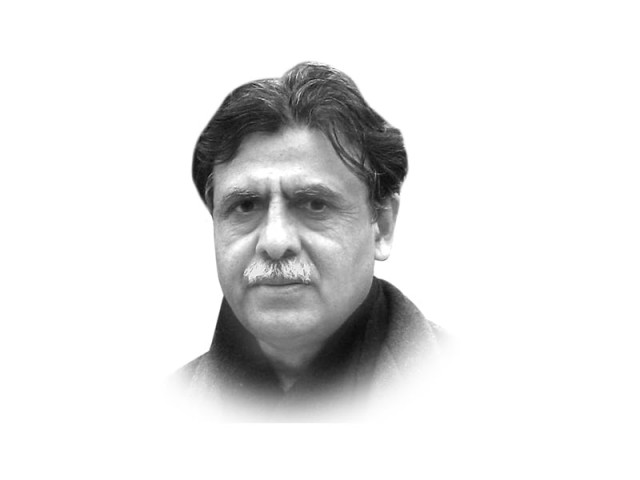The petrol crisis & ministerial responsibility
Aas chairman of the ECC, finance minister had a more wide-ranging, onerous responsibility than just defending his turf

The writer is an author, a public policy analyst and a former federal secretary. He teaches at the Lahore University of Management Sciences
Causes for this crisis have been listed, with one interlinked with the other. With falling oil prices, an increase in demand, as claimed, was neither foreseen nor built into the calculus. In addition, there was the failure of cash-strapped PSO to recover its receivables to manage the supply line, the refusal of banks to sustain the credit line in view of the defaults, the delay in the timely arrival of PNSC vessels at the Karachi port, the failure of the regulator to ensure that the mandatory stock requirement was adhered to, and the dithering of the finance division on the written requests made by the petroleum ministry to manage cash flows on an emergent basis.
Regarding the unaccounted rise in the demand of oil, even an average student of economics will know that the falling price effect entailed the substitution effect as well, more so when the supply of CNG was closed at gas stations. The petroleum minister made a statement on record that he would tender his resignation if found guilty of being involved in the petrol shortage crisis. Since he was never found guilty, he remains very much in the saddle. The finance minister came out clean too, claiming that the finance division had no role in the crisis and that this was all a conspiracy against the government. The minister, however, overlooked the fact that as chairman of the Economic Coordination Committee (ECC), he had a more wide-ranging and onerous responsibility than just defending his turf. The main point is this: what was the ECC doing during December when the crisis had just begun to rear its head? It is probable that while the petroleum ministry was knocking at the door of the finance division, the latter had been jealously guarding the magic sum of $15 billion in foreign reserves in order to stay on the IMF’s right side.
A two-member probe committee has come up with a catalogue of factors while holding the ministry officials and the regulator responsible, without of course, touching on ministerial responsibility. Reasons listed out by the probe committee are mere symptoms of a deeper malaise of inter-ministerial disconnect — the stakeholders could not see beyond their narrow domains. Anyone familiar with the business processes at the federal level will know that the inter-ministerial consultative process has been lacking in sense of timing. Under the rules of business, the minister in charge has the primary responsibility to keep the prime minister informed of all important matters. On matters involving more than one division, the minister in charge is to consult and obtain views of all divisions. In case of disagreement, the minister in charge can submit a proposal to the prime minister. If, for example, the finance ministry does not take a decision on a certain matter and drags its feet, nothing can stop the minister in charge to seek a direct recourse from the prime minister. Most such matters are invariably resolved in the ECC, a useful forum created in the mid-1960s. On several occasions, the ECC was chaired by the chief executive of the federation and on occasions, by the finance minister. Former prime minister Shaukat Aziz, all through his tenure, chaired this forum. Despite his low-key arrogance, he was known for his consummate skills and had a keen eye on consumer prices and stock positions of vital inputs like oil, fertiliser etc.
If there is a lesson to be learnt from the crisis, it is the fact that existing institutional arrangements did not work. Prime Minister Nawaz Sharif had to chaperone the three connected ministries for a couple of days to diffuse the crisis at his level. It was the instant cash flow that made the difference. Why wasn’t the decision regarding the cash flow not made when the crisis was building up in December? When it came to the rolling of heads, the petroleum secretary and senior officials of PSO were suspended. These moves do not play to the gallery anymore as now we have a very discerning public. The inquiry committee report holds the secretary responsible, an officer, who throughout his career, has otherwise been known for his diligence and circumspection. The report does not touch on the responsibilities of ministers. Such suspensions are mere knee-jerk reactions and do not send good signals to the beleaguered bureaucracy as political accountability is nowhere in sight. The bureaucracy, reportedly, is already low on confidence in the aftermath of the avoidable tragedy that was the Model Town Lahore incident.
One continues to hear the oft-repeated ‘Pakistan halat-e-jang main hai’ phrase. This state of war is now spiraling over from the national security area to the domain of economic security. These two paradigms need to be treated as an indivisible whole. While Prime Minister Nawaz Sharif is in the driving seat as far as the National Action Plan is concerned, he should also formally take over direct responsibility of important economic issues. The government has set up the energy committee, chaired by the prime minister. This executive fiat needs a quasi-legal cover through amendments in the rules of business with well-laid terms of reference. Decision-making needs to be far more structured than what it is at present.
Published in The Express Tribune, February 10th, 2015.
Like Opinion & Editorial on Facebook, follow @ETOpEd on Twitter to receive all updates on all our daily pieces.














COMMENTS
Comments are moderated and generally will be posted if they are on-topic and not abusive.
For more information, please see our Comments FAQ